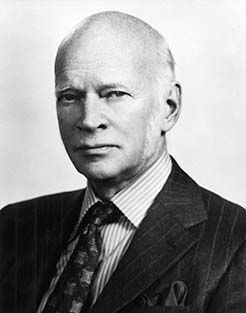Awards
- Guggenheim Fellow - 1977
- Distinguished Professor (Emeritus) - 1976
- National Academies - 1975
- American Academy of Arts and Sciences
- Guggenheim Fellow - 1951

Talbot Donaldson died April 13, 1987. He will be remembered as a great editor and interpreter of medieval texts. Piers Plowman, the Mount Everest of Middle English texts for difficulty, will be read in the definitive edition that he and his friend, George Kane, lovingly labored over and argued about in their collaboration of more than twenty years, and for which they received the 1978 Haskins Medal, the highest recognition of the Medieval Academy of America. Students and general readers will soon have available Talbot's translation of Piers into a modern version of the poet's own alliterative meter, which, in spite of failing health, he completed shortly before his death. Talbot's many lectures and articles and the commentaries in his college edition Chaucer's Poetry and in the medieval section of the Norton Anthology of English Literature have helped countless students understand and enjoy Chaucer's works. His vision of Chaucer as an ironic observer of the world's vanity and mutability who, nevertheless, makes us love the beauty of that world all the more has for many of us shaped our sense of the poet.
Talbot was born in 1910 in Bethlehem, Pennsylvania. Graduating from Harvard in 1932 during the depth of the Depression, he took a job teaching English, French, Latin, and Greek at the Kent School. A fellowship to Yale for promising instructors started a long and brilliant association with that university, where he held the George E. Bodman Professorship of English and served many years as Director of Graduate Studies. Under his directorship the number of women admitted to the program increased from 10% to 50%. Asked why, he answered, "Because it was right." The years at Yale were interrupted by wartime service in the Air Force (from private to captain); by teaching at University and King's College (London), at Columbia, and at Michigan; and by a Guggenheim Fellowship. Talbot joined the faculty of Indiana University in 1974.
By the time he retired in 1980, Talbot had received just about every honor available to an American medievalist. The Haskins Medal and one Guggenheim have been mentioned. He was also elected Fellow of the Medieval Academy, Corresponding Fellow of the British Academy, Fellow in the American Academy of Arts and Sciences, first President of the New Chaucer Society, and President of the Medieval Academy; he won a rare second Guggenheim; and he taught two NEH seminars on Chaucer and Shakespeare. He served on committees, chaired programs, and lectured frequently at meetings of all the professional societies of which he was a member; he was a guest lecturer at forty universities in England and America.
In 1981 Talbot was invited to give the Mary Flexner lectures at Bryn Mawr, and those lectures resulted in his last book, The Swan at the Well: Shakespeare Reading Chaucer. The title refers to "The Swan of Avon" and "The Well of English Undefiled" (Edmund Spenser's tribute to Chaucer). The book explores with great sensitivity how deeply the swan drank at the well, but it is also a profound expression of what it was that Talbot loved in Chaucer and Shakespeare and in literature. Above all that is the spirit found in two aging reprobates whom Talbot cherished--the Wife of Bath and Falstaff--whom he compares in the book's final pages. The Last sentence reads, "Both characters are still very much alive, very much their creators' celebrations of Life, and I can hardly think of anything better to celebrate." Like Chaucer and Shakespeare, Talbot Donaldson celebrated life and-- as an editor, translator, critic, and teacher--made the works of our ancient poets live. His influence is permanent. In this way he, too, will remain very much alive in his writings, in his editions, and in the minds and hearts of his students, the students of his students, and students in generations to come.
(Excerpts from BFC Memorial Resolution, 1988)